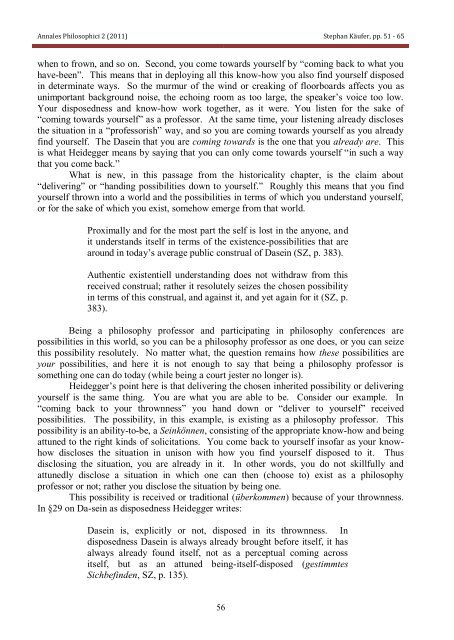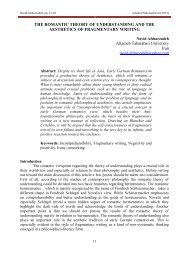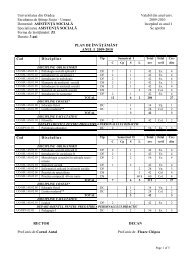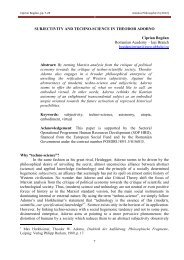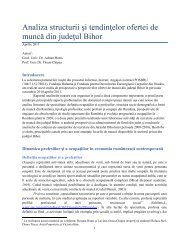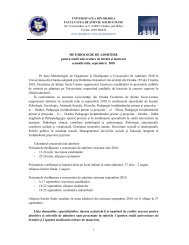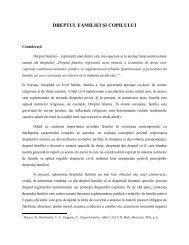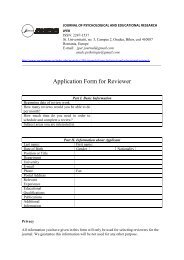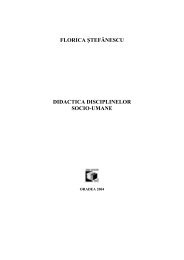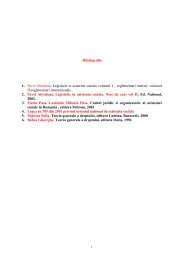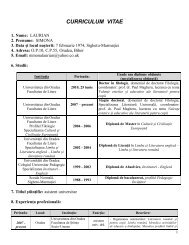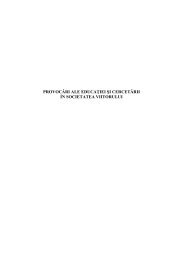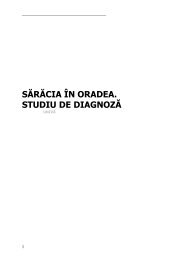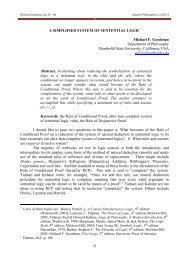Stephan Käufer: HEIDEGGER ON MINENESS AND MEMORY
Stephan Käufer: HEIDEGGER ON MINENESS AND MEMORY
Stephan Käufer: HEIDEGGER ON MINENESS AND MEMORY
Create successful ePaper yourself
Turn your PDF publications into a flip-book with our unique Google optimized e-Paper software.
Annales Philosophici 2 (2011) <strong>Stephan</strong> <strong>Käufer</strong>, pp. 51 - 65<br />
when to frown, and so on. Second, you come towards yourself by ―coming back to what you<br />
have-been‖. This means that in deploying all this know-how you also find yourself disposed<br />
in determinate ways. So the murmur of the wind or creaking of floorboards affects you as<br />
unimportant background noise, the echoing room as too large, the speaker‘s voice too low.<br />
Your disposedness and know-how work together, as it were. You listen for the sake of<br />
―coming towards yourself‖ as a professor. At the same time, your listening already discloses<br />
the situation in a ―professorish‖ way, and so you are coming towards yourself as you already<br />
find yourself. The Dasein that you are coming towards is the one that you already are. This<br />
is what Heidegger means by saying that you can only come towards yourself ―in such a way<br />
that you come back.‖<br />
What is new, in this passage from the historicality chapter, is the claim about<br />
―delivering‖ or ―handing possibilities down to yourself.‖ Roughly this means that you find<br />
yourself thrown into a world and the possibilities in terms of which you understand yourself,<br />
or for the sake of which you exist, somehow emerge from that world.<br />
Proximally and for the most part the self is lost in the anyone, and<br />
it understands itself in terms of the existence-possibilities that are<br />
around in today‘s average public construal of Dasein (SZ, p. 383).<br />
Authentic existentiell understanding does not withdraw from this<br />
received construal; rather it resolutely seizes the chosen possibility<br />
in terms of this construal, and against it, and yet again for it (SZ, p.<br />
383).<br />
Being a philosophy professor and participating in philosophy conferences are<br />
possibilities in this world, so you can be a philosophy professor as one does, or you can seize<br />
this possibility resolutely. No matter what, the question remains how these possibilities are<br />
your possibilities, and here it is not enough to say that being a philosophy professor is<br />
something one can do today (while being a court jester no longer is).<br />
Heidegger‘s point here is that delivering the chosen inherited possibility or delivering<br />
yourself is the same thing. You are what you are able to be. Consider our example. In<br />
―coming back to your thrownness‖ you hand down or ―deliver to yourself‖ received<br />
possibilities. The possibility, in this example, is existing as a philosophy professor. This<br />
possibility is an ability-to-be, a Seinkönnen, consisting of the appropriate know-how and being<br />
attuned to the right kinds of solicitations. You come back to yourself insofar as your knowhow<br />
discloses the situation in unison with how you find yourself disposed to it. Thus<br />
disclosing the situation, you are already in it. In other words, you do not skillfully and<br />
attunedly disclose a situation in which one can then (choose to) exist as a philosophy<br />
professor or not; rather you disclose the situation by being one.<br />
This possibility is received or traditional (überkommen) because of your thrownness.<br />
In §29 on Da-sein as disposedness Heidegger writes:<br />
Dasein is, explicitly or not, disposed in its thrownness. In<br />
disposedness Dasein is always already brought before itself, it has<br />
always already found itself, not as a perceptual coming across<br />
itself, but as an attuned being-itself-disposed (gestimmtes<br />
Sichbefinden, SZ, p. 135).<br />
56


